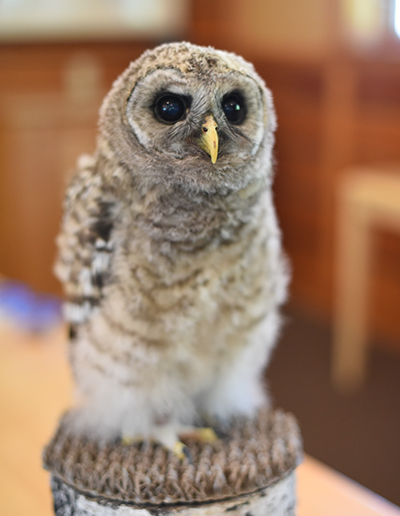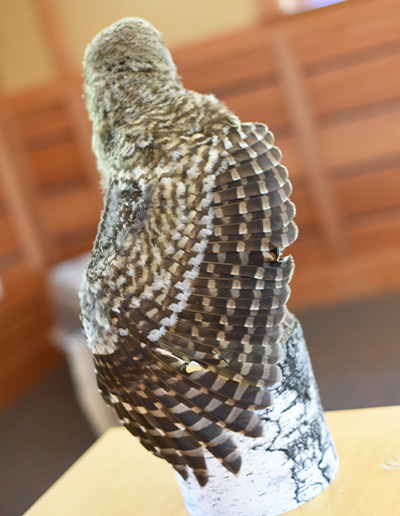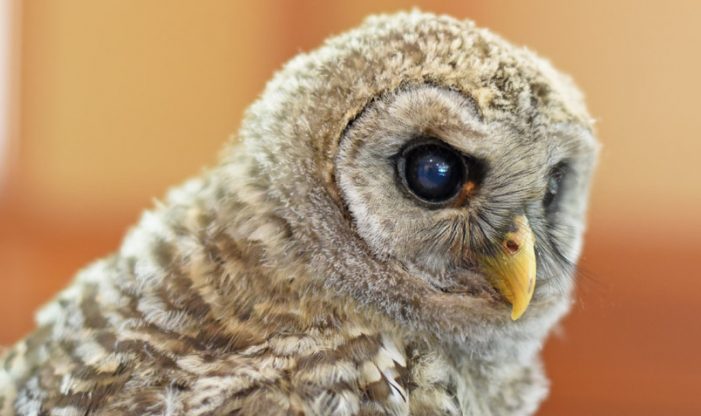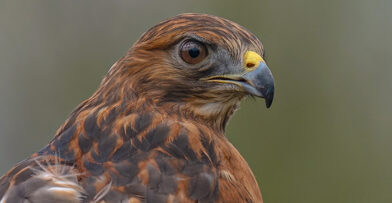Schlitz Audubon is excited to announce the addition of Perseus, a 6-week-old Barred Owl (Strix varia), into our Raptor Program. This young bird fell from his nest at only a few weeks of age. His tree was located in a very busy park, and he did not go unnoticed. For days, people picked him up, petted, and interacted with him. When police learned of the owlet in distress, they called a local rehabilitation specialist who, upon examining the young owl, found him emaciated and dehydrated. After caring for him for a short time, it became clear that his exposure to humans caused him to become imprinted. After being contacted by raptor rehabilitators Hoo’s Woods Raptor Center, we gladly agreed to welcome a new bird to the Center. Perseus is a permanent resident of our Raptor Program.


As an imprinted and physically able bird, Perseus will be trained for our developing flight program. Raptor Staff are working diligently to ensure he receives the proper training and socialization that is key to development at such a young age. Perseus will live at the Mews, with the other birds in our Raptor Program.
Birds Fledging Throughout Summer
During the spring and summer months, young birds are often found on the ground as they are learning to fly, called “fledging.” Birds need to learn how to fly, this just as humans learn to take their first steps. Often, birds will fall to the ground and scurry back up trees or bushes and try again. Their parents are always close by and keeping an eye on them. If you find a young bird on the ground, it’s best to evaluate the surrounding area and, if there are no signs of danger to the animal, just let it be. They will find their way.
Injured, Sick, or Fledging Birds in the Wild
While we are ecstatic to invite the public to learn about Barred Owls such as Perseus, we realize that Perseus may have had the opportunity to remain in the wild had he received necessary care as early as possible. If you observe an animal that appears to be in distress, the best thing you can do is call your local wildlife rehabilitation center and they will help the animal. Often times, local police can also help by reaching out to a wildlife rehabber. If there is too much human intervention, even the most well intentioned person can cause more harm than good. If you see an animal that appears to be in distress, we recommend not picking up or handling the animal in any way. Please contact Wisconsin Humane Society, or your local wildlife rehabilitation specialist, and as trained professionals they will handle the animal in the safest possible manner.
Barred Owls in Wisconsin
Barred Owls are famous for their “Who cooks for you, who cooks for you all,” hooting call, heard in backyards and natural areas throughout Wisconsin. This nocturnal species is found throughout the Eastern United States and portions of Central and Western Canada. They are non-migratory, meaning they live in Wisconsin throughout the entire year. These forest dwelling raptors are excellent at catching rodents, rabbits, and other small mammals, and are also known to eat fish in shallow waters. Barred Owls build nests on branches or in tree cavities, mate for life, and raise one brood each year.


